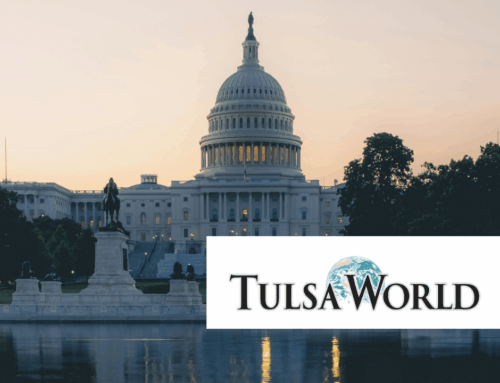ANCHORAGE, Alaska (KTUU) – The U.S. Forest Service is moving forward with a plan to exempt the Tongass National Forest from the 2001 Roadless Rule, opening up more than 9.2 million acres in the national forest to logging and other development, despite opposition from tribal governments and concerns about the economic viability of logging in the region.
The Final Environmental Impact Statement for the rulemaking was released Thursday, two years and nine months after former Alaska Gov. Bill Walker petitioned U.S. Department of Agriculture Secretary Sonny Perdue to exempt the Tongass from the Roadless Rule.
Friday, Alaska’s entire congressional delegation and Gov. Mike Dunleavy applauded the Final EIS, which outlines why a full exemption of the rule is Forest Service’s preferred alternative.
However, a broad group of supporters of the rule cites reasons ranging from the economics of the action to Indigenous rights and environmental impacts as reasons for keeping the rule in place.
“Our economy has shifted. And the tourism and fishing industry represent 26% of the jobs in the region, and the timber industry represents less than 1% of the jobs in the region,” Dan Cannon, Tongass Forest program manager for the Southeast Alaska Conservation Council, said. “So when we look at our Alaska delegation and our governor, they’re kind of living in the past. They’re living in the 1990s and they have this idea that Southeast Alaska’s economy is something that it isn’t. The economy has really shifted and the Roadless Rule is working for Alaskans and has now for two decades.”
Earlier this month, the federal budget watchdog group Taxpayers for Common Sense released a report analyzing 40 years of timber sales in the Tongass National Forest. Using USFS data, it found that timber sales in 1980 have generated $227 million, but cost $1.96 to administer. The group projected that the USFS would lose around $190 million over the next five years if the agency moves forward with currently planned timber sales.
Corri Feige, commissioner of the Alaska Department of Natural Resources, says that the Roadless Rule has stifled the timber industry and that exempting the Tongass will allow it to be more economical, and help the timber industry regrow into a more important part of a diversified economy.
“From the standpoint of the state of Alaska, we also enjoy good neighbor authority. So in areas where we have state timber lands that abut or adjoin federal Forest Service timber lands, that good neighbor authority can be utilized, and now with other portions of the Tongass being removed from the Roadless Rule, it allows us to put together sales that make sense economically that can support the mills in Southeast Alaska and the timber producers there,” Feige said. “For Southeast Alaska, that’s jobs. We went from, I think it 2017, latest statistic I saw was somewhere in the neighborhood of maybe 125 to a 150 jobs associated with timber. And here just a couple of years ago we were down at 60. And so it’s a huge impact to that region.”
“I think what people don’t understand is that any time we’re looking at a sale, part of certainly what the State has to consider and what the Forest Service has to consider is the broad range of impacts and what can be mitigated,” Feige said. “So for example around this notion of everything being clear cut, it simply isn’t reality because the forest management plans don’t allow for there to be an overt impact, for example, to areas where there could be viewshed that’s very important to tourism in the area. All of those elements are considered when you’re planning a timber sale, and you have to look at each and every one of those aspects.”
Autumn Hanna, the vice president of Taxpayers for Common Sense, says it is those administrative costs and the costs of road-building that make the timber sales in the Tongass a net-loss for the government.
“The federal government’s role is not to make sales attractive or competitive for industry. If the economics aren’t there they aren’t there, and the timber industry is on decline and subsidizing these sales is not going to turn that around. There are much other bigger issues on the trade end, demand, that are at play here,” Hanna said. “We’re really looking at this from a dollars and cents perspective, and we’re not opposed to timber harvest. It’s just in the Tongass, you can’t subsidize your way out of the problems here with the timber industry and we think this is a bad use national of taxpayer dollars. It unjustified and these subsidies continue to add up year after year.”
Industrial-scale clear cut logging and the roads associated with it are the primary points of contention with exempting the Tongass from the Roadless Rule, but the change could also simplify access to other uses.
“For nearly two decades, the Roadless Rule has stifled opportunities for Alaskans in Southeast to harvest timber, connect communities, develop minerals and build vital energy projects,” Sen. Dan Sullivan said in a statement.
However, Cannon says that the rule has worked for Southeast Alaska because it is already flexible.
“It’s well designed because the rule allows for many exemptions, and all 57 exemptions that various industries have applied for on roadless areas in Southeast have been approved by the Forest Service,” Cannon said. “This includes exemptions for mining. This includes exemptions for Federal Aid Highways. This includes exemptions for hydroelectricity development. It includes exemptions for transmissions lines … Really this rule is very flexible and it’s not really inhibiting much.”
What the rule has inhibited is clear cut logging of old-growth in more than 9 million acres of the forest.
Earlier this summer, the leaders of nine tribal entities in Southeast Alaska petitioned the Department of Agriculture in response to how the USDA has handled the rulemaking process to create a Traditional Homelands Conservation Rule.
“All Tribes in Southeast Alaska are federally recognized, sovereign governments. Proposed action to lift the 2001 Roadless Rule will affect all Southeast Tribes’ traditional territory and traditional and customary uses of said territory. Thus, as with all management on the Tongass, our perspectives should significantly inform this decision-making process,” the tribal leaders wrote. “Instead, throughout this process, our voices have been disregarded, disrespected, undervalued, and ignored. The USDA’s ongoing efforts to exempt the Tongass National Forest from the 2001 Roadless Rule, despite the Tribes’ united and staunch opposition to a full exemption alternative, is yet another example of the federal government’s failure to fulfill their fiduciary trust responsibility to Alaska Native Tribes.”
The Record of Decision on the Roadless Rule exemption for the Tongass is expected to be released in late October.










